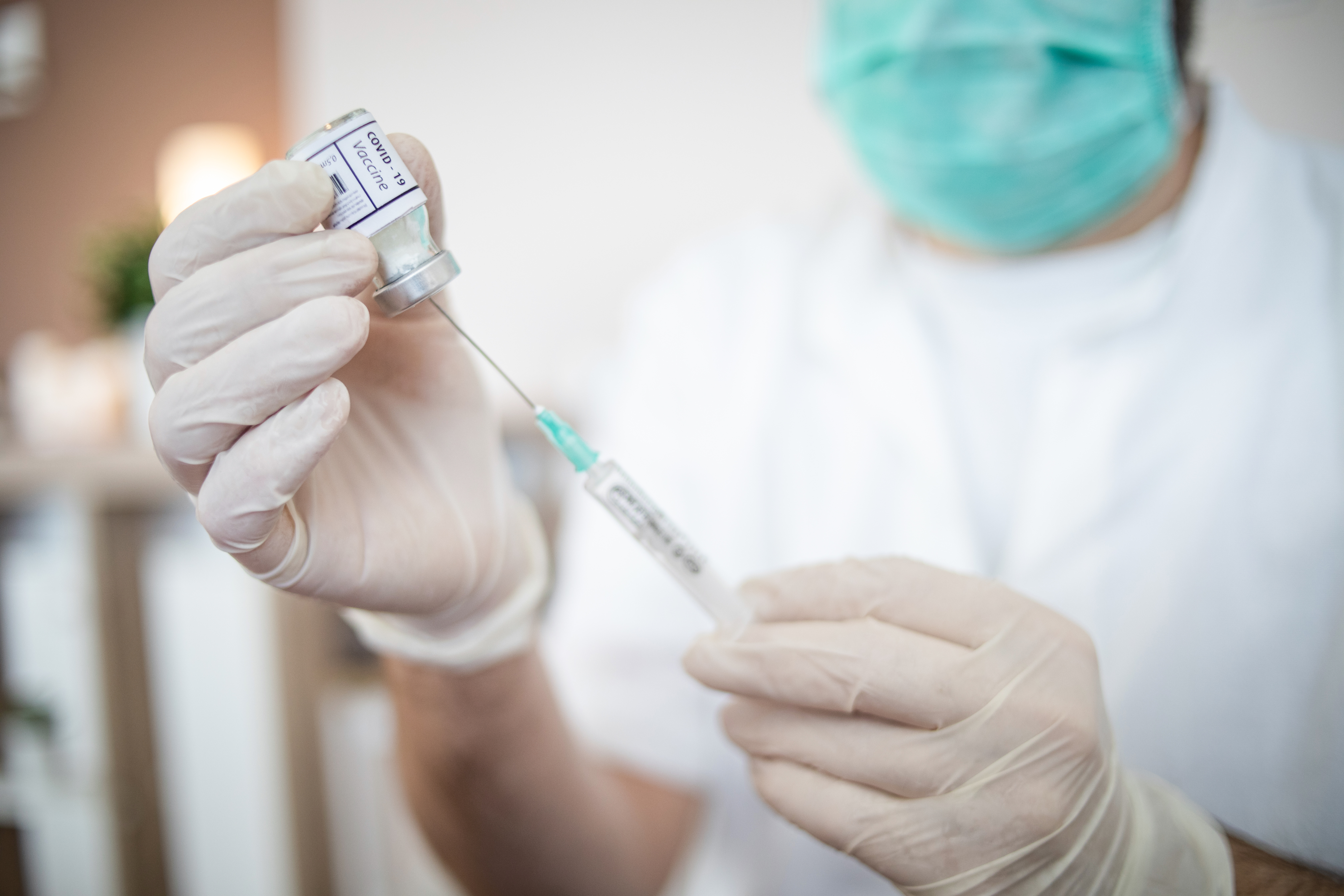All adults in Massachusetts are now eligible for COVID-19 vaccine booster shots. But do all adults really need one?
Boosters are currently available nationwide for people who initially received their second dose of Pfizer or Moderna at least six months ago if they’re 65 or older or are at high risk of COVID-19 because of health problems or their job or living conditions. Boosters are also recommended for people who received the single-dose Johnson & Johnson vaccine at least two months ago.
Gov. Charlie Baker's administration announced Thursday that Massachusetts would join a growing list of states that have expanded booster shots to all residents aged 18 and over.
NBC10 Boston asked three top Boston doctors on Tuesday about whether the booster is really necessary in a weekly series, "COVID Q&A."
Do I really need a booster shot?
All three vaccines used in the U.S. continue to offer strong protection against hospitalization and death from COVID-19. But immunity can wane over time.
It's important to shore up protection in at-risk people who were vaccinated months ago, experts say. But does everyone really need the booster shot, even if they aren't high-risk?
"That's a challenging question to ask," Brigham and Women's Hospital's Dr. Daniel Kuritzkes said.
The answer, he added, largely depends on an individual's lifestyle.
"If you're happy still limiting your activities, always wearing a mask, you don't interact with lots of other people who may be unvaccinated, then you can probably continue to be safe without getting a booster," Kuritzkes said. "But if you want to be more out and about to get back toward more normal life and have more regular interactions or go to a restaurant and crowded events, it is probably wise to get boosted, particularly if you fall into one of those risk groups."
Nearly 31 million Americans have received a dose beyond their original vaccination, including those with weakened immune systems, such as cancer patients and organ transplant recipients who need an extra dose to be fully vaccinated.
"To me, the biggest challenge around the boosting question is that while boosting may provide some temporary additional benefit to the people boosted, that's not the solution to the ongoing epidemic in the United States or the global pandemic," Kuritzkes added.
What is the end goal?
Dr. Anthony Fauci, the nation's top infectious disease expert, urged everyone who qualifies to get a booster to go ahead and get one earlier this week.
But health experts are increasingly calling on federal officials to establish a clear goal for the country, Dr. Shira Doron of Tufts Medical Center noted.
That lack of direction makes it difficult for experts to determine whether the average person really needs a booster shot.
"What is the country's goal? What are we trying to achieve with our vaccination campaign exactly? If we have that it would be easier to answer that question," Doron said.
"We can boost until the cows come home, frankly. It's not going to bring an end to the pandemic," Kuritzkes said. "Nor will it end breakthrough cases, so long as you have 20 to 30% of people unvaccinated where there continues to be the circulation of SARS-CoV-2 in the community"
The solution, he said, is for more people to get vaccinated.
Massachusetts health officials on Tuesday reported more than 5,300 new breakthrough cases over the past week, and 41 more deaths. The report brings the total number of breakthrough cases to 64,120, and the death toll among people with breakthrough infections to 509.
Both figures remain a small percentage of the total number of all people who have been vaccinated -- by contrast, more than 4.8 million Bay State residents have been fully vaccinated.
"We expect breakthrough cases. They will occur. The more of the population that's vaccinated, the higher the proportion of total cases will be breakthrough cases," Kuritzkes said. "But that's a tiny fraction of the vaccinated people. And the people most at-risk, and the people continuing to feed the pandemic are, by and large, the unvaccinated."
Boston Medical Center's Dr. David Hamer said he regularly fields questions about whether the vaccine itself is necessary from people who have had COVID-19 already.
"They feel like, 'I've got natural immunity. So why bother with a vaccine?' And, you know, I think that increasingly there's more and more evidence that that new infections are occurring in that group at a much higher rate than people that have been vaccinated," Hamer said. "That's a group that needs to understand that their their risk is yes, lower than somebody who's never had the disease, but it's a lot higher than somebody that's been vaccinated."
More From the COVID Qu0026amp;A Series
A panel of Boston-based doctors talk about everything related to the COVID-19 pandemic every Tuesday at 10:30 a.m.



